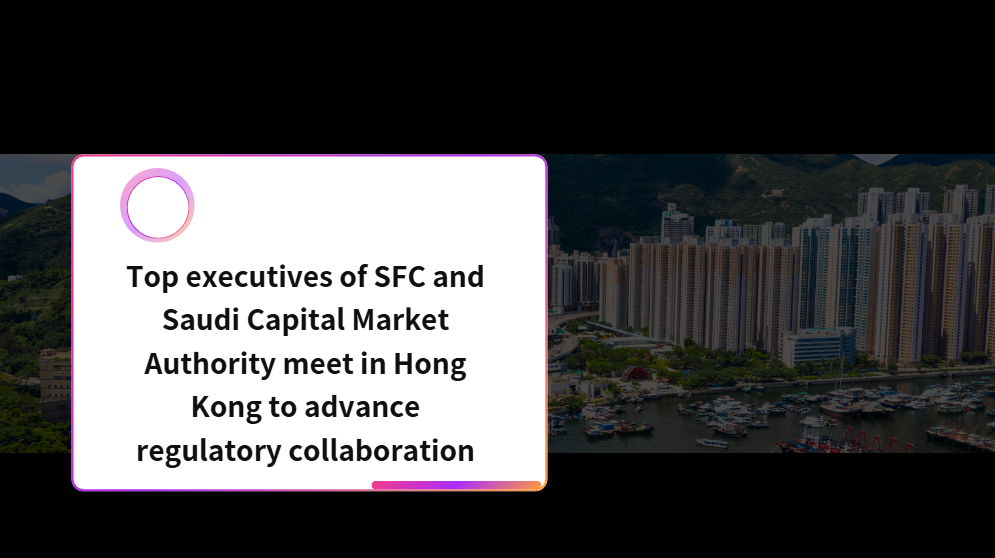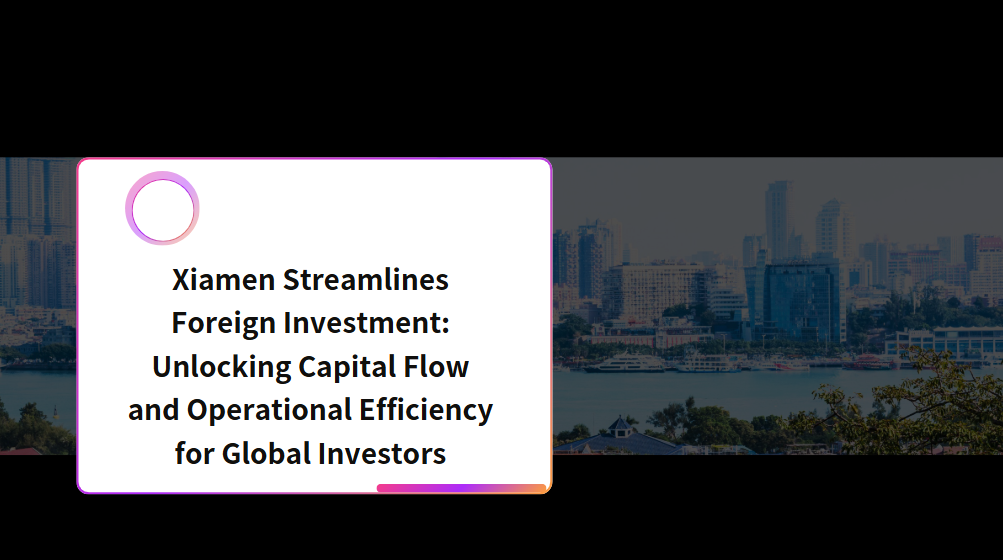Summer Davos 2025: Global Investors Take Note as China Goes Green, Global, and Regional
本文包含AI辅助创作内容
From AI-driven healthcare to green finance and Asian economic integration, this year's Summer Davos is more than just a talking shop—it's a mirror of the pragmatic, transnational shifts shaping investment risk and opportunity.
Held in Tianjin from June 25–27, the 2025 Annual Meeting of the New Champions—commonly known as Summer Davos—brought together over 1,800 participants from more than 90 countries. At a time of geopolitical uncertainty and technology-led disruption, this year's gathering underscored several underlying trends with direct implications for global investors: the resilience of Chinese private firms in global markets, the rise of green industrial strategies, and Asia's bid to anchor a new era of regional economic dynamism.
For cross-border fund managers, multinational corporate strategists, and policy advisors, the forum offered more than high-level statements. It showcased firm-level strategies, policy signals, and sectoral insights that reflect how real capital—not just abstract agendas—is adapting to the evolving global landscape.

Capital Without Borders: China's Private Sector Bets on Globalization
At a time when “de-risking” and “strategic decoupling” dominate Western political rhetoric, some of China's most globally engaged private companies are signaling the opposite—doubling down on outbound investment and cross-border partnerships.
TCL founder and chairman Li Dongsheng, speaking at a roundtable, noted that globalization remains an "inevitable path" for Chinese industry. His firm's overseas push—launched in 1999—is not simply about export growth, but about localizing operations, investing in green manufacturing, and sharing supply chain resilience with partners in Europe, Southeast Asia, and the Americas.
“There has been a wave of de-globalization, but for Chinese companies, going global is still a must. China contributes significantly to global industrial output, and our manufacturing competitiveness still has room to grow.”
— Li Dongsheng, Chairman, TCL
That sentiment echoes China's broader policy stance. Despite geopolitical headwinds, Beijing continues to support its firms'global expansion strategies—through fiscal incentives, export finance, and new regional trade platforms such as RCEP.
For international partners, this means more than passive market access. It opens possibilities for joint ventures, greenfield investment, and co-developed technologies, particularly in next-gen manufacturing, medtech, and clean energy. Investors with exposure to industrial services, logistics, or digital infrastructure will find the model increasingly hybrid: Chinese firms may be competitors in some markets, but collaborators in others.
AI and Healthcare: A Template for Cross-Border Innovation
Artificial intelligence remains a strategic focus in China's industrial policy—but it's in applied sectors like healthcare that the opportunities for cross-border integration are most evident.
Gong Rujing, chairwoman of Yidu Tech, emphasized that many of the structural inefficiencies in healthcare—ranging from cost burdens to fragmented supply chains—are global in nature. Her firm, which operates in five countries including Singapore and Brunei, is leveraging AI to streamline diagnostics, optimize treatment flows, and personalize care at scale.
“Regardless of how the global landscape changes, our approach is based on openness and international collaboration. What works in China's healthcare innovation can often translate globally.”
— Gong Rujing, Chairwoman, Yidu Tech
From an investor's perspective, this trend signals several converging dynamics:
Scalable healthtech platforms with proven deployment in China are now entering foreign markets with local partners.
Regulatory cooperation in digital health and data sharing will become increasingly important in Asia.
Venture capital and growth equity in health AI may face near-term compliance challenges, but long-term efficiency gains remain compelling.
China's approach—fusing public policy backing with AI entrepreneurship—is now a soft export. For LPs and GPs alike, Yidu Tech and similar firms may emerge not only as portfolio targets, but as potential strategic bridges to high-growth Asian health systems.
Green Industrial Policy: China as Partner, Not Just Competitor
Sustainability remained a central theme throughout the forum—both symbolically (the entire venue was powered by 100% green electricity, saving an estimated 600 tons of CO₂) and substantively.
Gong Ke, the forum's Chinese agenda coordinator, emphasized the alignment between AI deployment and green transformation, while global executives echoed the urgency of transnational climate cooperation.
David Christoph Lerch, Head of Global Public Policy at Bayer AG, noted:
“China is steadfast in its climate transition, while other countries are wavering. That clarity is not just welcome—it's necessary for global industrial transformation.”
From green steel and battery technology to supply chain decarbonization, China's scale gives it an outsize role in shaping global sustainability metrics and pricing. For foreign firms in construction, automotive, or renewables, this creates both:
Sourcing opportunities(e.g., low-cost solar components, lithium battery systems), and
Compliance partnerships(e.g., carbon tracking, lifecycle certification, AI-powered ESG reporting)
Executives like Abdullah Cerekci of Kale, a Turkish firm developing green construction materials, highlighted the potential of integrating China's green tech advances into international markets—particularly as EU carbon border adjustments and U.S. IRA incentives reshape trade competitiveness.
“Electric cars are everywhere in China now. That's a big change from ten years ago. The experience and technology here are exportable.”
— Abdullah Cerekci, Kale
Global investors seeking ESG-aligned growth will find that China's green transformation—however uneven—is becoming investable.
The Asian Century, Still in Motion
In a forum panel titled “Is Asia's Century at Risk?”, participants tackled the region's resilience amid protectionism and geopolitical friction.
While skepticism looms in Western capitals, Asian leaders used the platform to project confidence.
Pham Minh Chinh, Vietnam's Prime Minister, called for an Asian Innovation Network to enhance cooperation across research institutes, startups, and industry, and proposed a regional innovation portal to support small and medium-sized enterprises.
Meanwhile, Paul Chan, Financial Secretary of Hong Kong, cited robust market performance and Western investor activity as proof that geopolitics hasn't derailed financial confidence:
“Fifteen percent of new capital inflows in Hong Kong this year are from the U.S. and Europe. Investors are voting with their wallets.”
Supporting data from AmCham Hong Kong showed 70% of U.S. businessessurveyed reported no adverse effects from the National Security Law, and over 60% were planning expansion.
For global investors assessing Asian equity, venture, and manufacturing exposure, this matters. The Davos discussion reaffirmed:
The continued integration of ASEAN, South Asia, and East Asia through trade agreements and digital corridors
The central role of infrastructure and port cooperation(e.g., Belt and Road logistics) in keeping regional value chains connected
A shift from dependency narratives toward mutual innovation and shared standards
The key message: Asia's economic ascent is adapting, not receding—and investors willing to think regionally, not bilaterally, will be better positioned for the next decade.
Why This Matters for Global Business Leaders
While the Summer Davos lacks the headline intensity of its Swiss counterpart, its value lies in its signal quality—what firms and governments are doing, not just saying.
For international investors and corporate decision-makers, key takeaways include:
Chinese private firms remain active globalizers, offering partnership potential, especially in high-tech, healthcare, and advanced manufacturing.
China's green economy is no longer just a policy—it's a market segment, generating investable projects and exportable standards.
Asia's regional integration is accelerating, creating complex but high-growth ecosystems for capital, technology, and talent.
In short: the forum offered a ground-level glimpse into where long-term capital is flowing, beyond the noise of tariffs and tech restrictions.
Whether you're an institutional allocator, cross-border legal counsel, or multinational executive, understanding these currents is not optional. It's strategic.





















































First, please LoginComment After ~